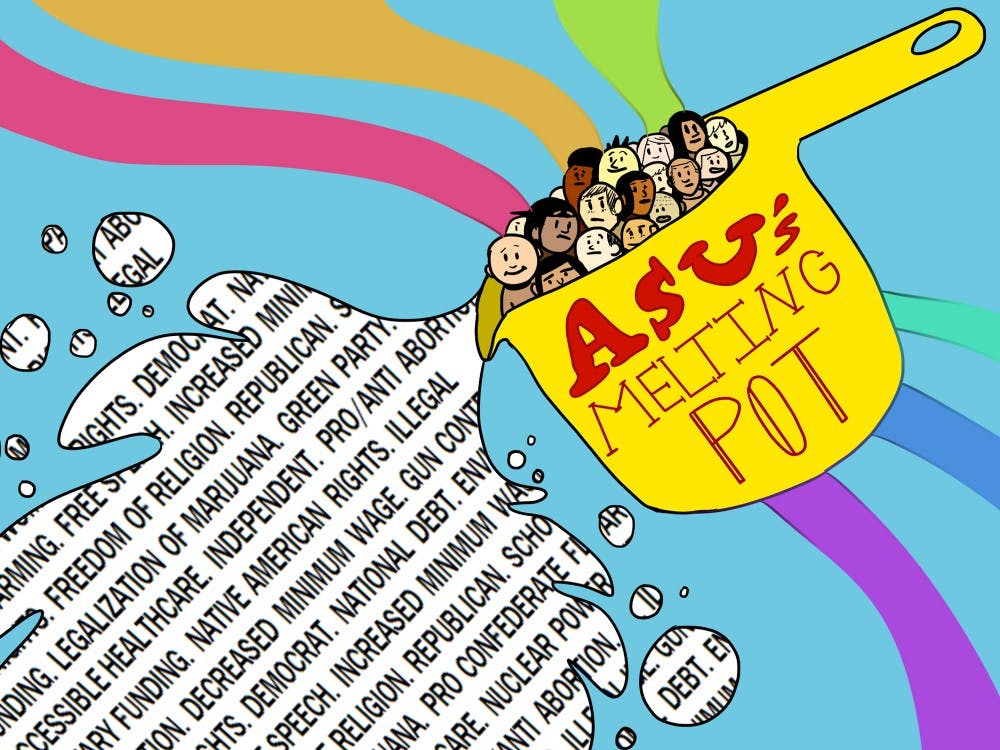ASU is characterized by an incredibly large and diverse student body. With that, comes a diverse set of opinions. It is vital that students use this as an opportunity to educate themselves on different perspectives, especially in politics.
This allows students to hear opinions juxtaposed to their own, and gives them the potential to either substantiate their own beliefs or become more educated on a new position. This creates positive leaders on and off campus.
ASU has been ranked No. 4 for international students, specifically in the growth of international enrollment. Students from across the globe flock to ASU for its consistently high rankings for preparing students for the workforce and excellent educational programs.
As a result, ASU’s student body consists of students from many different backgrounds. Students from rural Arizona or the Big Apple can find themselves in a classroom with a first-generation student from Puerto Rico or a transfer student from Shanghai.
Being exposed to different cultures and ethnicities creates a smarter, more unified student body. As students discuss the political issues most important to them, they have the potential to change another student’s mind on a policy, or open their eyes to something they had never realized before.
“A lot of people have set political philosophies going into things, but you need to seek people who think differently than you in order to learn more things,” Kyle Whalen, officer for Young Americans for Liberty and ASU junior studying political science, said. “You can either form new opinions or ideas or strengthen your own opinions or ideas.”
This diversity is a great thing. Not only can students become more knowledgeable about worldly issues, but they are also able to challenge their own opinions and create stronger arguments to validate those thoughts. Ultimately, students are able to exercise critical thinking — a skill which is highly sought after in the job market.
While engaging in political discourse, students should be able to support their beliefs and perspectives with facts and evidence.
Individuals from another background or a different side of the political spectrum can challenge those beliefs, shedding light on the opposing side's argument, possibly offering information they had not explored before.
Although this diversity of opinions is educational in nature, it is also important for students to find others from different backgrounds who share the same beliefs as they do. Many students feel as if their opinions are not respected by the opposing side, no matter how valid they may be, but this is not always the case.
It is healthy for students to find like-minded individuals who agree with their viewpoints in spite of a difference in background. This fosters a more inclusive environment, where students don't feel ostracized by their nationality or culture.
Working with students from different backgrounds also prepares students for successful political careers. Being able to compromise and understand those of different races, cultures or perspectives is essential when working closely with constituents.
“People get so freaked out about wanting to have a conversation with someone you disagree with – it’s really disturbing,” Whalen said. “But I feel like these are the types of conversations we should be having in college.”
ASU’s diversity creates smarter, more engaged student leaders. Understanding different political opinions is crucial in closing the gap between different races and opening the door for significant conversation and compromise.
Reach the columnist at amsnyde6@asu.edu or follow @AnnieSnyder718 on Twitter.
Editor’s note: The opinions presented in this column are the author’s and do not imply any endorsement from The State Press or its editors.
Want to join the conversation? Send an email to opiniondesk.statepress@gmail.com. Keep letters under 500 words and be sure to include your university affiliation. Anonymity will not be granted.
Like The State Press on Facebook and follow @statepress on Twitter.




